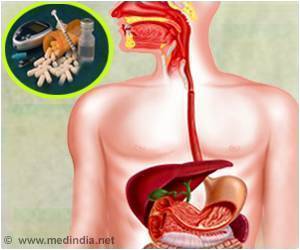Increasing the levels of the fat hormone Neuregulin 4(Nrg4) protects liver cells from metabolic stress in mice, says study.

TOP INSIGHT
The estimate is that by 2020, non-alcoholic steatohepatitis will be the leading cause of the need for liver transplants, surpassing hepatitis and alcoholic liver disease.
The findings published in the Journal of Clinical Investigation, led the researchers to believe that Nrg4 may be an effective target for therapeutic intervention.
Fatty liver disease represents a spectrum of disorders, ranging from relatively harmless benign fatty liver to potentially life-threatening NASH -- which results in chronic inflammation, liver injury and fibrosis, increasing the risk of cirrhosis and liver cancer.
More than a third of U.S. adults and up to 10 percent of children have some form of fatty liver disease. In up to 20 percent of these patients, the liver cells begin dying, and the disease develops into NASH. And the problem is growing.
"The estimate is that by 2020, NASH will be the leading cause of the need for liver transplants, surpassing hepatitis and alcoholic liver disease," said Lin, a faculty member at the U-M Life Sciences Institute, where his lab is located, and at the U-M Medical School. "And there are currently no drugs available that can treat it."
To address this question, Lin and his colleagues evaluated the effects of Nrg4 in mice that had been fed the type of high-fat, high-sugar diet that leads to fatty liver disease.
The findings expand on a previous study from Lin's lab that showed Nrg4 could prevent the liver from converting sugar into fat, lowering the risk of fatty liver disease at its outset.
"We're now seeing that it performs two major activities," Lin said. "It not only regulates metabolism by reducing liver fat accumulation, but it's also keeping the liver cells healthy. And by doing that, it can actually prevent the progression into NASH."
And there's more good news: The researchers have not yet seen any negative side-effects in the mice with increased Nrg4. Lin's lab is now focused on further testing the therapeutic viability of the hormone in treating NASH.
Source-Eurekalert
 MEDINDIA
MEDINDIA




 Email
Email










